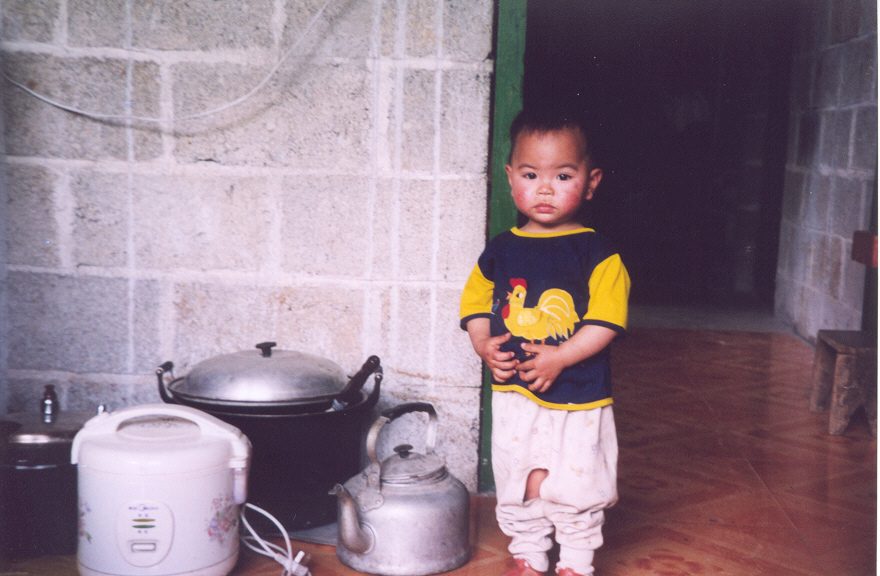 Whether you have hepatitis B or not, you will want to follow some simple clean-up rules now that you are living in a more public environment and away from home. (Take a look at the previous blog – Off to College with HBV.) Regardless of your living arrangements – dorm room, quad, or apartment, you will want to set a couple of ground rules, and be prepared for maintenance, and possible emergency spot cleaning.
Whether you have hepatitis B or not, you will want to follow some simple clean-up rules now that you are living in a more public environment and away from home. (Take a look at the previous blog – Off to College with HBV.) Regardless of your living arrangements – dorm room, quad, or apartment, you will want to set a couple of ground rules, and be prepared for maintenance, and possible emergency spot cleaning.
Bathrooms are a breeding ground for a plethora of bacteria and viruses. They are the site of all kinds of planned and unplanned, natural and unnatural biological and human functions that produce blood, bodily fluids, and all kinds of other body by-products. They are shared spaces where very private things occur. They are shared spaces where there’s a whole other microbial world living off of all the human activities that occur in the bathroom. That is why bathrooms should be cleaned properly and regularly. It’s good practice and keeps everyone healthy.
Standard or universal precautions are prevention methods that should be integrated into everyone’s life. The whole goal is to prevent contact with an infectious agent such as HIV, HCV and HBV, assuming all possible blood or bodily fluids may be contaminated. They remind you to provide a barrier between you and any potentially contaminated blood or body fluid, whether it is in an emergency situation with a bleeding person, or the cleanup of blood or bodily fluids. It’s yet another reminder to “wash your hands”, and basically use common sense. In the case of HBV or other infectious diseases (HCV, HIV), blood in particular may contain high concentrations of virus which could be transmitted to others through mucous membranes, orifices, or microscopic cuts in the skin. HBV is a tenacious virus and can live outside the body for seven days. Fortunately, HBV is vaccine preventable.
If you live in a dorm, with shared, floor bathrooms, they should be cleaned and maintained by the janitorial staff. However, it’s good to be prepared for an emergency spill in your room, or the bathroom at odd hours. If you live in a quad or apartment with others, you’ll want to be sure to set up a chore chart so that common areas like bathrooms and kitchens are properly cleaned, and that trash is regularly disposed. If you don’t set the ground rules from the start there are bound to be hard feelings among your roommates.
Weekly bathroom maintenance should include the disinfection of surfaces on toilets, sinks and showers. The general rule is clean first and then disinfect. This does take some time since the bathroom cleaner is first sprayed and allowed to sit for at least 30 seconds (times will vary with the disinfectant or depending on your source), and then cleaned with towels, (to be disposed, or laundered separately in hot water with detergent and a little bleach) and then disinfected with the same cleaner and allowed to sit for at least five minutes, and then finally wiped down again with clean towels. Don’t know how many housekeepers follow this rule of thumb, but use common sense and think about how you use your towels as you clean from surface to surface. In between cleanings, use disposable bleach wipes to wipe the toilet and sink, and don’t be stingy with them.
Keep the container of bleach wipes in plain sight so visitors have the option to wipe the toilet, sink, or clean up after an accident – hopefully not with the same wipe. (You may find it interesting to note that the sink is often the greatest source of bacteria…a moist environment with plenty of microbial snacks including skin flakes and other organic fodder) Don’t forget to put out a container of liquid soap to encourage hand washing, and if you are a female at college, be sure that all used feminine hygiene products are carefully disposed of in plastic bags.
When it comes to cleaning up a blood or body fluid spill, it is essential to follow the rules. All blood should be considered contaminated with an infectious agent such as HCV, HIV or HBV. If you are assisting your friend or roommate in the case of an emergency, be sure you have a barrier between you and your bleeding friend – of course this is after you have called 911 if this is a true emergency.. Disposable gloves are perfect, but in a pinch, put plastic bags on your hands, or use a clean sanitary pad, or bunch of towels (paper or cloth) to staunch the flow of blood. When you are finished with the emergency, dispose of contaminated articles and thoroughly wash your hands with soap and warm water before progressing to the cleanup. Hopefully your roommate will be able to clean up his own spill, but it’s possible he’ll need some help.
Bleach is a wonderful disinfectant, and effectively kills HBV, and other pathogens. Don your disposable gloves, and prepare a fresh bleach solution for the cleanup that is one part bleach to nine parts cool water. Use a fresh solution as the potency of the solution quickly diminishes, and do not use hot water. Remember the proper order – clean, then disinfect. When cleaning a surface that is known to contain a potential contaminant (blood or bodily fluid), spray it with the bleach solution and let it sit for a few minutes. While wearing gloves, cleanup the spill with disposable rags or paper towels. Dispose of the contaminated towels, and gloves. Don a new pair of gloves and once again spray the area. Let is sit and disinfect for at least 10 minutes and wipe again with clean towels. Dispose of contaminated towels and gloves in a seal-able plastic bag.
If you are in a dorm shared-bathroom, it’s possible to walk into a mess you choose not to clean up, but be sure to alert floor mates of the contaminated area with a sign so others are not accidentally exposed to the potential contaminant, and to alert the janitorial staff of the spill. It’s a courtesy, but it also keeps everyone safe.
There are also EPA registered disinfectants that are premixed and kill infectious diseases, but be sure that HBV is specifically listed as it is a more difficult virus to kill. The times to soak and disinfect vary with each product, and the times I found for basic disinfection varied in my research, so when you’re making the effort, be sure to take the extra time to ensure you have killed all possible contaminants. These pre-mixed disinfectants are more convenient, but they are also more expensive, and you need to check the dates to ensure they remain effective and have not expired.
Here are list of supplies to have on hand for your room or apartment that specifically relate to blood and body fluid cleanups:
- 1 small bottle of bleach
- 1 squirt bottle (pre-marked with a sharpie to denote bleach and water quantities.. 1 part bleach to 9 parts cool water)
- Box of disposable gloves
- plastic bags – trash and sandwich bags
- disposable towels or paper towels
You’ll need a list of other supplies if you want to keep that bathroom relatively germ free. Don’t forget the soap and the bleach wipes!
 Hurricane Irene is currently slamming the eastern seaboard. I wrote this blog in anticipation of losing power. It was a tough week. First, the east coast “earthquake of the century”, and now Hurricane Irene and related flooding.
Hurricane Irene is currently slamming the eastern seaboard. I wrote this blog in anticipation of losing power. It was a tough week. First, the east coast “earthquake of the century”, and now Hurricane Irene and related flooding.








